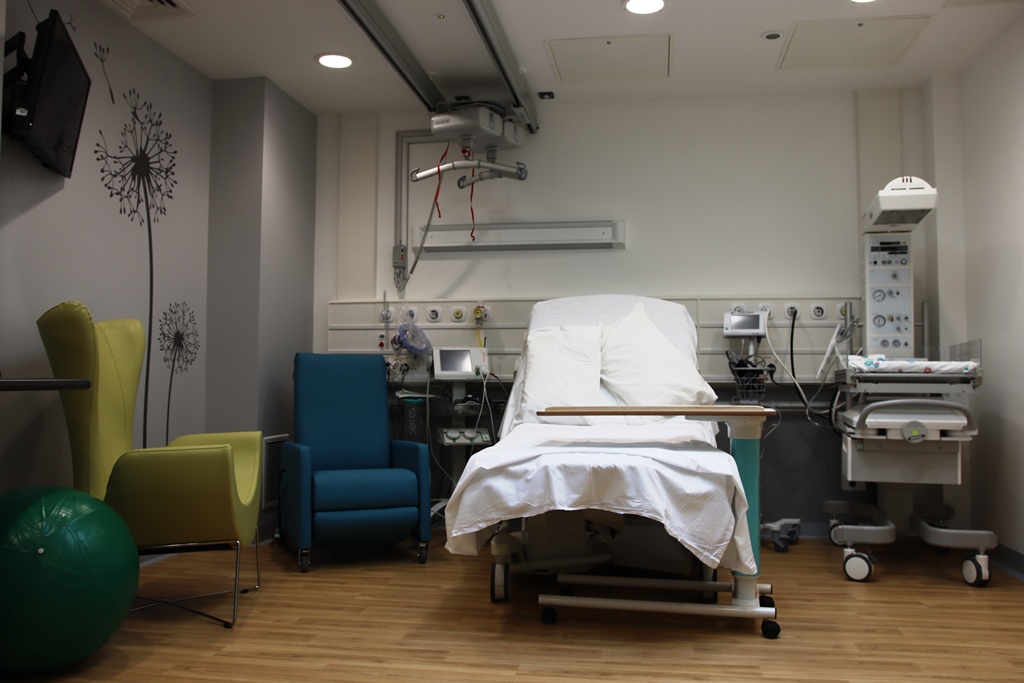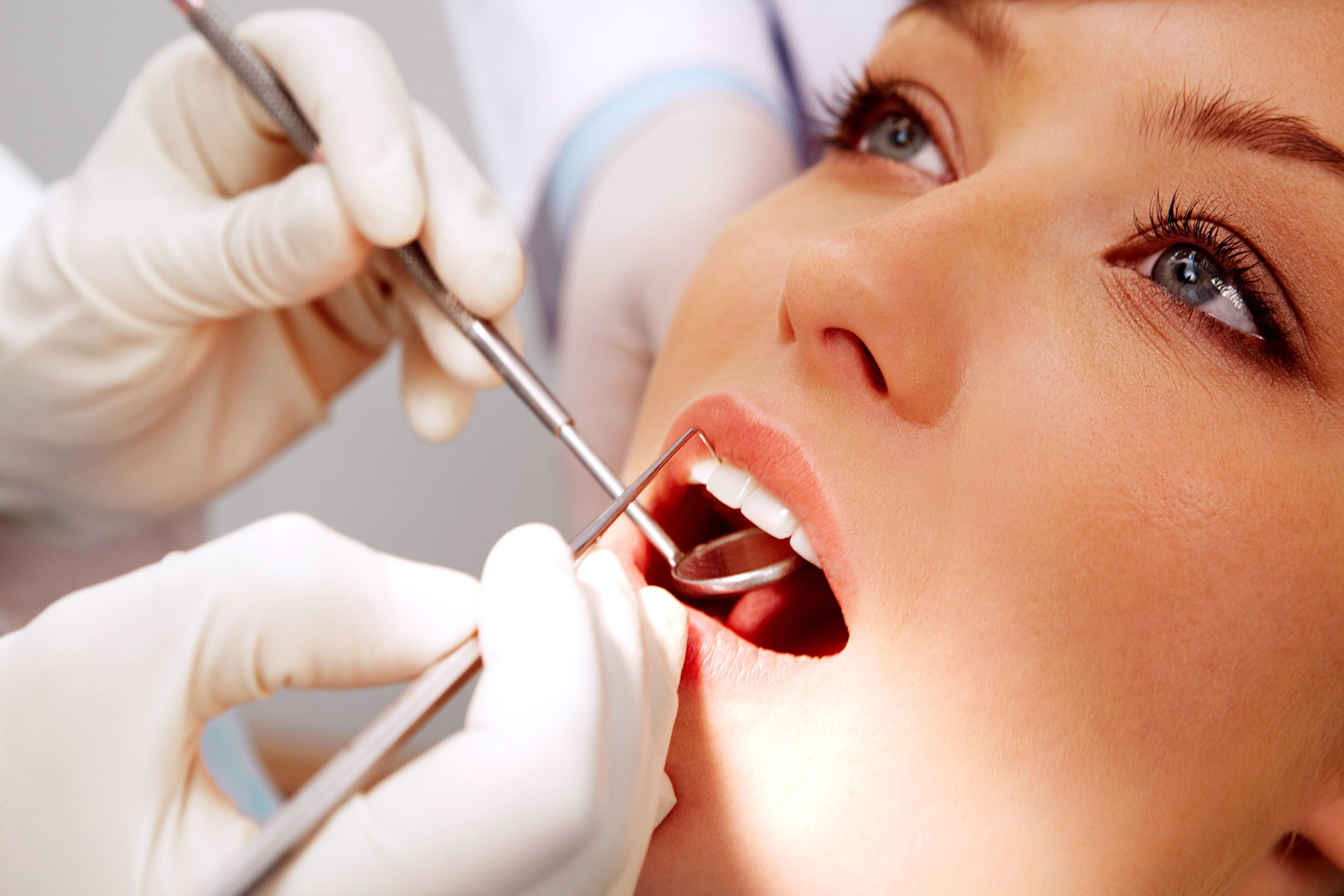Health
Hywel Dda Health Board: Multi-million pound maternity ward opens to welcome new arrivals

A NEW labour ward for west Wales has opened its doors ready to welcome babies into the world.
The new unit at Glangwili Hospital, Carmarthen forms part of a £25.2m Welsh Government investment announced in 2018 by the previous Health Minister. The new development has created new obstetric and neonatal facilities at the hospital.
This is the second major development in the scheme following the opening of a new special care baby unit earlier this year.
The state-of-the-art unit, which has been purpose built with the focus being on the baby and their family, and the midwifery team, includes:
- Five standard birthing rooms with en-suite
- One birthing room with a fixed pool
- One birthing room equipped to deal with multiple or complex births
- Six bedded Enhanced Monitoring Unit
- The clinical space meets national guidance which respects family privacy and dignity.
The clinical area and the staff facilities will improve the working environment for the midwifery team and will be beneficial to their wellbeing. The new facilities include an appropriate area for teaching and multi-disciplinary working; which is due to be available once the Theatres work has been completed.
Minister for Health and Social Services, Eluned Morgan, said: “It’s fantastic to see Welsh Government funding being used to create this modern labour ward which will provide important care.
“The ward will very much benefit both families who will use the service and staff who will deliver care in this state-of-the-art facilities.”
Steve Moore, Chief Executive, Hywel Dda University Health Board thanked all involved in the project: “It’s wonderful to see our new labour ward open for babies and their families.
“The improved facilities are part of our continued investment in women and children’s services and will provide a modern environment for babies across Carmarthenshire, Ceredigion and Pembrokeshire.
“I wish to personally thank everyone involved in this project for their dedication and hard work over recent years. Thank you all.”
Lisa Humphrey, Interim General Manager for Women and Children’s Services, Hywel Dda University Health Board commented: “As project director I would like to thank all of the parents, staff and the contractors for their contribution to the delivery of this scheme.
“Having an up-to-date unit enhances the delivery of high-quality care that the team already provide in an environment that improves well-being for babies, their families and staff.”
Newly appointed Kathryn Greaves, Head of Midwifery, Hywel Dda University Health Board added: “I’m delighted to be joining the team at such and exciting time. The team who have worked so hard and shown real commitment to creating the optimum birthing environment for the women, birthing people and families.
“The impact on both maternity patients and staff is immeasurable and the joy on the faces of those who have been supporting the move into the new environment has been nothing short of uplifting for everyone.
“Creating the optimum birthing environment shows real investment in ensuring the best start in lives for our future generations and the safety and future proofing of our services to deliver high standards of care.”
The final stage in the project, which will see the opening of new theatres, is expected to be completed in 2023.
For the latest news and updates from Hywel Dda University Health Board visit: https://hduhb.nhs.wales/
Health
Doctors to enter pay negotiations with the Welsh Government

BMA CYMRU Wales has suspended forthcoming industrial action for Consultants and SAS doctors following a constructive meeting with the Welsh government to resolve its pay disputes.
As a result of sustained pressure, including three rounds of industrial action by junior doctors in Wales, the Welsh Government has made a significant proposal to form the basis of talks to end the pay disputes with all secondary care doctors including Consultants, SAS and Junior doctors.
Since the meeting last week, the committees representing doctors from all three branches of practice have voted to enter pay negotiations based on this proposal.
The planned 48-hour strike by Consultants and SAS doctors due to take place from 16 April will now be suspended.
Junior doctors have paused plans to announce more strike dates whilst they enter negotiations with the Welsh Government.
The Welsh junior doctors committee, Welsh SAS committee and Welsh consultants committee will now each engage in pay negotiations, with the aim of reaching deals which can be taken separately to their respective members.
Dr Oba Babs Osibodu and Dr Peter Fahey co-chairs of the BMA’s Welsh Junior doctors Committee said:
“This is a significant step forward. It is sad that we had to take industrial action to get here, but we are proud of members for demonstrating their resolve in pursuit of a fair deal for the profession.
“Whilst we are optimistic and hope to quickly resolve our dispute, we remain steadfast in achieving pay restoration. Until we reach a deal, nothing is off the table.
“We will continue to work hard to reach an offer that is credible to put to members who will ultimately have the final say.”
Dr Stephen Kelly, chair of BMA Cymru Wales’ Consultants committee said:
“The Welsh Government’s recent efforts to reach an end to the pay dispute are encouraging and so we have called off our planned strike for now whilst we allow time and space for negotiations to take place.
“We’re hopeful that we can reach a deal that sufficiently addresses years of erosion to our pay to help retain senior doctors in Wales but remain ready to strike if we’re not able to do so during negotiations.”
Dr Ali Nazir, chair of BMA Cymru Wales’ SAS doctor committee said:
“As a committee, we felt that this latest development goes someway to understanding the strength of feeling of our members. We will work hard to reach a settlement that sufficiently meets the expectation of our colleagues who have faced real terms pay cuts of up to a third since 2008/9.”
In August last year, the BMA’s committees representing secondary care doctors in Wales voted to enter into separate trade disputes with the Welsh Government after being offered another below inflation pay uplift of just 5% for the 23/24 financial year. SAS doctors on some contracts were offered as little as 1.5%. This was the lowest pay offer any government in the UK offered and less than the DDRB, the pay review body for doctors and dentists, recommended last year.
As part of their disputes, SAS doctors, consultants and junior doctors carried out successful ballots for industrial action. Since then, junior doctors have taken part in 10 days of industrial action since January this year.
Health
BMA pay disputes – Junior Doctors, Consultants and Specialist Doctors

THE WELSH Government and BMA Wales’ three national committees representing consultants, SAS doctors and junior doctors have today agreed to formal negotiations about pay.
Planned industrial action will be suspended during the negotiations.
A mandate is being developed for the talks with all three BMA branches of practice with the aim of resolving the disputes over pay for 2023-24.
In the context of the most challenging financial position the Welsh Government has faced since devolution, a significant amount of work has been undertaken to identify funding to support the negotiations.
First Minister Vaughan Gething said: “We recognise the strength of feeling among BMA members and that industrial action is never taken lightly.
“This is a government that listens and engages to find solutions. I prioritised a meeting with the BMA directly alongside the Cabinet Secretary for Health to reinforce our commitment to that partnership approach.
“We currently face the most severe financial situation in the devolution era which makes our task far harder. Despite this backdrop, we have worked to identify a way forward that I hope will lead to the successful resolution of this dispute and ensure that doctors can return to work in NHS Wales.”
Cabinet Secretary for Health Eluned Morgan added: “Even in these very challenging circumstances, we have worked in social partnership with the BMA and NHS to maintain patent safety during industrial action.
“But the strikes have been very disruptive to the delivery of NHS services – none of us want to see doctors on strike. I am pleased the three BMA committees have agreed to pause further industrial action and begin formal talks with Welsh Government and hope we can bring an end to this dispute.”
Health
NHS dental charges in Wales to increase from April

THE COST of NHS dental treatment in Wales will increase from 1 April 2024.
The increase in dental charges is the first since April 2020 and are overall still lower than in England. Any revenue generated from the increased charges will be re-invested back into NHS dentistry services.
From April 2024, the three standard charges will increase to between £20.00 and £260.00 depending on the treatment required, and urgent treatment will increase to £30.00.
Around 50% of people receive NHS dental treatment for free in Wales. Those eligible for free treatment include children under 18 or those aged 18 and in full time education, pregnant women or those who have had a baby within the 12 months of treatment starting, anyone who has dentistry treatment carried out in a hospital or people on certain benefits.
Additionally, the low-income scheme provides full or partial help with health costs, depending on individual circumstances.
Despite pressure on budgets the Welsh Government has increased investment for dentistry, with funding £27 million higher than it was in 2018 to 2019. Included within this increase is an additional £2 million a year to address local access issues.
Changes to the dentistry contract in Wales include a requirement for NHS practices to see new patients. Since this was introduce in April 2022, 312,000 people who couldn’t get an appointment before have now received NHS dental treatment.
Cabinet Secretary for Health and Social Care, Eluned Morgan, said: “Because of the extreme pressure on our budget we have had to consider if additional funding should be raised by increasing dentistry charges.
“This is the first increase we have made to dentistry charges since 2020. Around half of patients don’t pay for their NHS dental treatment and we will continue to protect those that are least able to afford to pay.
“It is vital we all keep our teeth and gums healthy. This is why we are working to make it easier for people to see an NHS dentist by increasing the number of new NHS places and helping dentists to focus on those who need help by changing how often we see a dentist for routine appointments.”
Commenting on the announcement Russell George MS, Welsh Conservative Shadow Health Minister said: “Vaughan Gething’s arrogant choice to hike up dental charges for the people Wales, rather than cut his Labour Government’s wasteful spending is wrong.
“All standard charges are being increased for dental services by the Labour Welsh Government, including for urgent treatment, which will add to cost-of-living pressures.
“While Welsh Conservatives agree that dental services require greater investment after years of Labour underfunding them, ministers should look at cutting vanity projects like their plans to create more politicians before passing on the cost to patients.”
-

 Business4 days ago
Business4 days agoBluestone National Park Resort payments expected to end
-

 Community6 days ago
Community6 days agoThe Harbourmaster: Special rail excursion draws crowds to Milford Haven
-

 News5 days ago
News5 days agoDragon LNG ‘monitoring’ scrap car blaze in Waterston
-

 News6 days ago
News6 days agoSearch for Luke, 19, reported missing in the Pembroke Dock area, continuing
-

 News3 days ago
News3 days agoSearch for missing teenager Luke continues at Pembroke Dock
-

 Crime4 days ago
Crime4 days agoEstate agents admit health and safety failings following fatal market incident
-

 News7 days ago
News7 days agoMajor search in the area of The Cleddau Bridge and Hobbs Point
-

 News3 days ago
News3 days agoMan jailed after scarring police officer in Narberth altercation

























